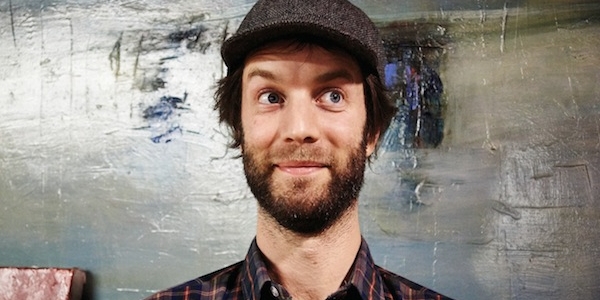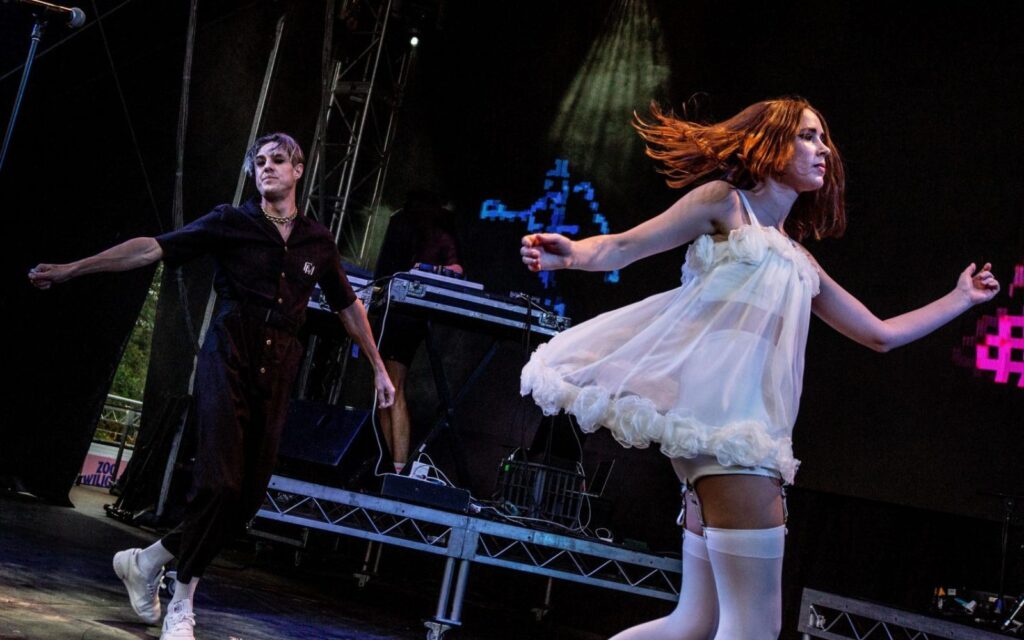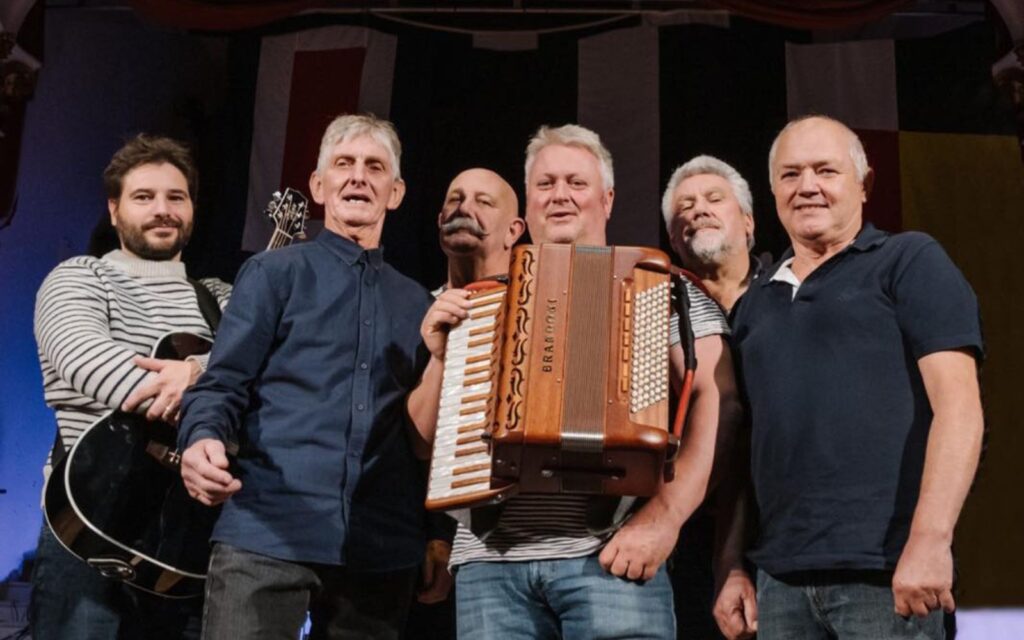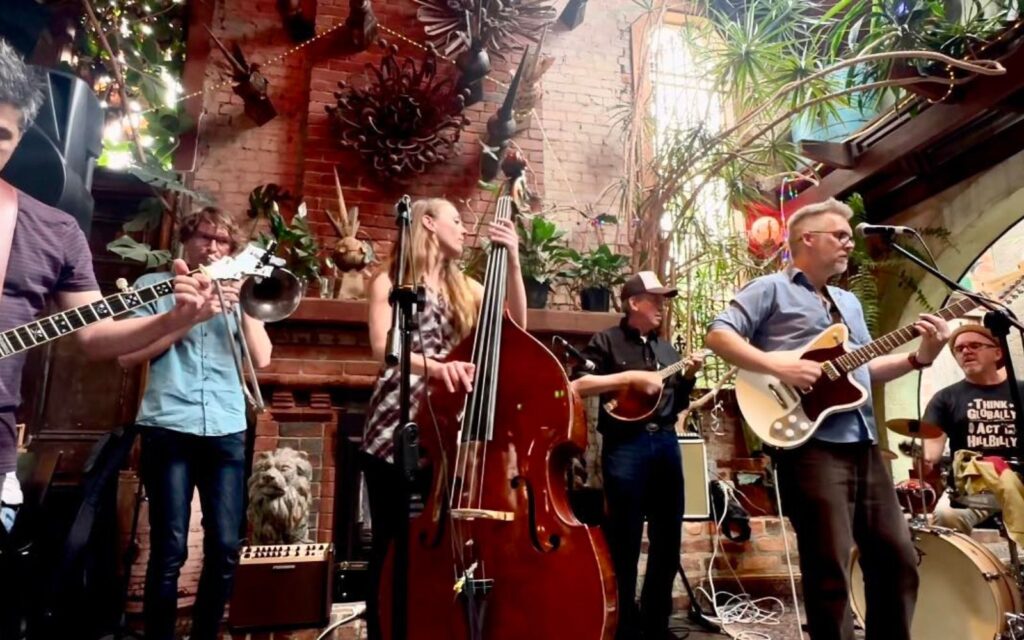“7Bit Hero really is a celebration of video game culture and art. Hunz is a little less optimistic, it’s a little more melancholy,” he says. 7 Bit Hero is deeply rooted in the video game culture, but Hunz leave out the esoteric references in favour of more relatable personal musings. “Lyrically in 7Bit Hero, and the instruments, it’s all made up in a computer game world. We’re using geeky language that makes me laugh but other people might just look at it and just go ‘I don’t understand why you said that,’ because it doesn’t make sense if you’re not in that culture. Hunz doesn’t do that. We sing about stuff that isn’t inside the computer game universe.”
Pop-music history suggests that music made using video game devices isn’t too unusual to be popularly embraced. Dabblers in chip music include Beck and the Beastie Boys, and Hans believes the obscure nature of Bjork’s electronica represents the potential for pervading a bigger market. However, beyond its cult following, chip music is not quite a widely celebrated genre. “I love it. I listen to it all the time, so I’m always looking for ways to bridge gaps. You just want people to recognise that there’s so much talent in that scene. There’s people that crossover and linger in it but they don’t love it. Sometimes it trends and people do it, but these guys love it,” says Hans of the major chiptune practitioners.
By playing with a live drummer and bass player, Hunz attempt to make their sound more accessible and thus demonstrate that chip music is a legitimate artistic form. “When you have a drummer and a bass player it really helps break barriers for people, they start understanding it more. I love listening to people on laptops and Gameboy gear and all sorts of stuff, but I really long for that community to be accepted by everyone else. A lot of these guys are incredible artists; they do amazing things and it really inspires me. These guys should be earning money to sustain themselves yearly. That’s my desire, that would be great.”
Hans started composing 8-bit music in his youth, but soon adopted 16-bit technology and was prominent in the associated demoscene movement. “Demoscene is what burst out of chiptune music. I wrote chiptunes under the moniker Hunz when I was growing up and then I moved into the next generation of where 8-bit music went, when the ‘90s hit. It’s still in the chiptune community but it’s just a branch up from it. Instead of the Master System you’ve got the Megadrive, instead of the NES you have Super Nintendo.”
Hans reveals that, much to his surprise, the music he made when he was young has recently been esteemed by many younger artists in the scene. “I had a few chiptune artists come up to me and be like ‘I really like what you’re doing and I listened to a lot of your stuff when I was making my music.’ I was really weirded out; all the stuff I’d done when I was younger people were listening to in that scene.”
All performances at Square Sounds will be a multi-sensory experience, combining chip music excellence with inspired visuals. “We’re getting put together with a really cool visualist, so he’ll have free range to mash up whatever he feels like putting together on the night. I think they’ve got three different VJs. They’re just really into their craft and they bring a lot of 8-bit love across all the artists.”
To appease any scepticism, Hans confirms that making music using video game consoles is a mode of personal expression and explains that he doesn’t have to abstract to utilise computer technology. “It’s like second nature now. You know how you watch those mad guitarists and you’re like ‘holy moly, what are they doing’, and you’re freaking out a little bit. But to them it’s second nature, they just step up and that’s the way their fingers work. So for me, because I’ve spent so long just tracking or figuring out how to program that way, there’s no emotional detachment anymore. When I’m going ‘Oh man, I feel like this,’ I step to my equipment and it does exactly what I need it to. It’s very synchronised now.”
BY AUGUSTUS WELBY







